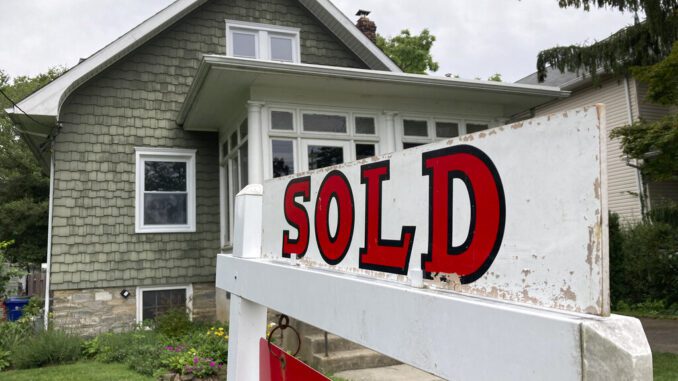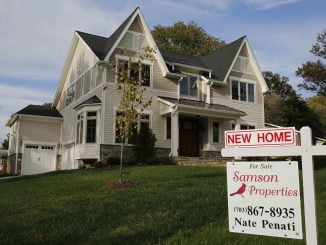
Sales of previously occupied U.S. homes slowed for the fifth consecutive month in June as higher mortgage rates and rising prices kept many home hunters on the sidelines.
Existing home sales fell 5.4% last month from May to a seasonally adjusted annual rate of 5.12 million, the National Association of Realtors said Wednesday.
That’s lower than the 5.37 million home sales pace economists were expecting, according to FactSet. Sales fell 14.2% from June last year.
After climbing to a 6.49 million annual rate in January, sales have fallen to the slowest pace since June 2020, near the start of the pandemic, when they were running at an annualized rate of 4.77 million homes. Excluding the pandemic-related slowdown, sales in June were running at the slowest pace since January 2019.
Even as home sales slowed, home prices kept climbing in June. The national median home price jumped 13.4% in June from a year earlier to $416,000. That’s an all-time high according to data going back to 1999, NAR said. Despite the increase, home prices are not climbing as much as they were earlier this year.
“With each passing month it appears price appreciation is less strong than earlier months,” said Lawrence Yun, NAR’s chief economist.
The June’s sales report is the late evidence that the housing market, a key driver of economic growth, is slowing as homebuyers grapple with sharply higher mortgage rates than a year ago.
“A combination of higher prices and higher mortgage rates clearly has shifted the dynamics in the housing market,” Yun said. “Home sales will only begin to stabilize once mortgage rates begin to stabilize.”
The average rate on a 30-year fixed-rate home loan climbed to 5.51% last week, according to mortgage buyer Freddie Mac. A year ago it averaged 2.88%.
Mortgage rates have been climbing in response to a sharp increase in 10-year Treasury yields, reflecting expectations of higher interest rates overall as the Federal Reserve raises its benchmark rate in a bid to quell the highest inflation in decades.
Even with higher mortgage rates straining affordability, homes that sold didn’t stay on the market for long. On average, homes sold in just 14 days of hitting the market last month, the fastest sales pace tracked by the NAR. It was 16 days in May. Before the pandemic, homes typically sold more than 30 days after being listed for sale.
House hunters able to navigate the impact of higher mortgage rates had a wider selection of homes to choose from last month, at least. The number of properties for sale jumped 9.6% from May to 1.26 million, and rose 2.4% from June last year — the first annual increase in three years, Yun said.
Still, at the current sales pace, the level of for-sale properties amounts to a 3-month supply, the NAR said. That’s up from 2.6 months in May, and 2.5 months a year ago. That’s still short of the 5- to 6-month supply that reflects a more balanced market between buyers and sellers.
Despite the still-tight supply of homes for sale, rising mortgage rates and prices, first-time buyers accounted for 30% of sales last month, NAR said. That’s up from 27% in May, but still low by historical standards, when first-time buyers made up as much as 40% or more of transactions.
Real estate investors and other buyers able to buy a home with just cash, sidestepping the need to rely on financing, accounted for 25% of all sales last month, NAR said.


